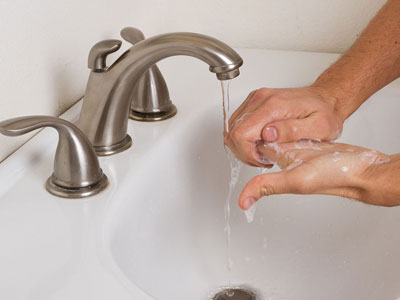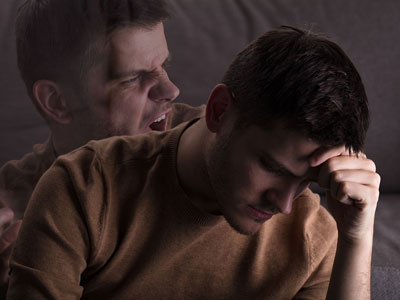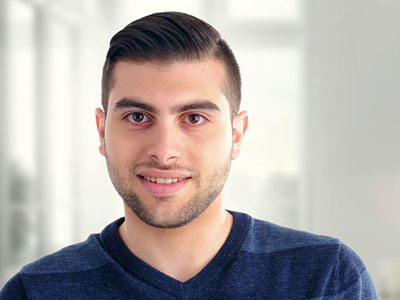About 40 million adults in the U.S. suffer with anxiety, whether it’s an officially diagnosed anxiety disorder or not. Yet 40 percent of these Americans do not seek treatment for their medical condition, maybe because they don’t know if anxiety can be treated, how it’s treated, if it is curable, or how to live with it. The fact is that anxiety disorder is highly treatable and treatment can help those experiencing anxiety to return to a fully functional life.
How Is Anxiety Disorder Treated?
Anxiety disorder treatment usually consists of a combination of counseling or psychotherapy and medications. Finding the right combination may involve using varying techniques and approaches, as there is no universal treatment for anxiety that works best for everyone. Treatment professionals work to tailor an anxiety treatment plan for the individual’s specific needs.
Anxiety Disorder Treatments
Counseling
While you can’t talk yourself out of an anxiety disorder, you may very likely benefit from psychiatric counseling to help manage daily symptoms and learn coping mechanisms that can minimize symptom occurrence, intensity and frequency.
Cognitive Behavioral Therapy (CBT)
Cognitive behavioral therapy (CBT) is one of the most effective forms of psychotherapy used to treat anxiety disorders. With the help of a therapist, CBT helps teach the individual skills to improve anxiety symptoms, learn how to avoid triggers that initiate or escalate anxiety, and how to manage anxiety-provoking situations.
Exposure Therapy
As the name implies, exposure therapy involves confrontation of fears through repeated attempts. In treating anxiety disorder, exposure therapy seeks to help the individual better cope with situations that previously were too stressful and anxiety-provoking.
Medical Integration
In the diagnosis and preparation of a treatment plan for anxiety disorder, a full medical work-up and consideration is necessary. This is known as medical integration or integrated medical care. Its purpose is to ensure that the symptoms are not being caused by other undiagnosed ailments. Some physical health issues can look like anxiety, but are treated with medications or other treatments, not necessarily what is used for anxiety disorders. A thorough workup helps to target what needs to be treated and what is anxiety or something physical. A full medical work-up involves a psychological evaluation, a physical exam and various tests, which may include blood tests.
What Are Medication Options for Anxiety Treatment?
When anxiety jeopardizes everyday living and makes functioning difficult, medication may be prescribed to help with particular symptoms. These may include medications to help ease muscle tension, cope with irritability, restlessness, insomnia and other symptoms of anxiety.
Medication may be prescribed in conjunction with counseling so that the individual feels less anxious and better able to focus on getting at the underlying causes for the anxiety, as well as being an active participant in other therapeutic approaches. When doctors do prescribe medication for anxiety, it is only at the doses recommended for initiation of the medicine and gradually increased, as needed. Low doses of anxiety medication, as well as using certain medications only on a short-term basis, helps prevent overuse, dependence and potential addiction.
Types of Medication for Anxiety Treatment
Three medication types are typically prescribed for managing anxiety symptoms: antidepressants, anti-anxiety medications and benzodiazepines.
- Antidepressants – Selective serotonin reuptake inhibitors (SSRIs) are antidepressants that may be prescribed for treatment of anxiety. They’re also used to treat depression. In treating anxiety, SSRIs may need to be taken for a few weeks before symptoms begin to subside. Brand names of SSRIs include Zoloft and Paxil.
- Anti-Anxiety medications – Sometimes the doctor may opt to prescribe anti-anxiety medication, such as Buspirone, to help treat a specific type of anxiety disorder, general anxiety disorder (GAD). While there are a few side effects, including nausea, headaches and dizziness, these mostly occur at the start of taking the medication. It generally takes a couple of weeks for the medication to be effective.
- Benzodiazepines – Also an anti-anxiety medication, benzodiazepines have often been prescribed to treat anxiety in those diagnosed with GAD. However, due to the high-abuse potential of the drug, as well as the risk of dependence and addiction, benzodiazepines are usually only prescribed for short-term use. Brand names of benzodiazepines include Valium and Xanax.
What Are Natural Options for Anxiety Treatment?
Along with counseling and medication that may be prescribed to help combat anxiety disorder, there are natural options to consider. Diet and lifestyle changes are often beneficial to improve mental health conditions, such as anxiety, even when the condition was not considered poor at diagnosis. Natural options to help with anxiety include meditation, breathing exercises, yoga and acupuncture, among others.
Meditation
Anxiety causes the mind to race, replaying endless sequences of troubling thoughts. Meditation helps calm the mind, reducing the obsessive cycle of negative thinking. A study from Johns Hopkins University found that mindfulness meditation programs may be able to help reduce symptoms of anxiety and depression as well as stress and distress.
Breathing Exercises
One of the common symptoms of anxiety is hyperventilation. Deep breathing exercises can help reduce the hyperventilation that often occurs with severe anxiety, panic attacks, or a panic disorder. Learning to modulate breathing with deep breathing exercises also helps calm the body and mind. The exercises are easy to do and don’t require a lot of time.
Yoga
Yoga is a stress-reduction technique that has gained many practitioners in recent years. The popularity of yoga has as much to do with its perceived ability to reduce anxiety by modulating stress response systems as it does the scientific evidence that the practice improves overall health.
Acupuncture
An ancient practice, which involves insertion of fine needles into body pressure points, acupuncture has shown some promise in improving symptoms of GAD, and in those whose anxiety failed to respond to medication and psychotherapy. Although acupuncture may not work for everyone, and more research is needed to better understand how the practice affects anxiety, it is a safe, natural option.
Can Anxiety Disorder Be Cured?
Anxiety disorder can be effectively managed, yet there is currently no absolute cure. Given exposure to certain highly stressful triggers or situations where previous anxiety attacks have occurred, the troubling and immobilizing symptoms may return. The best defense to help defuse and lessen the likelihood of debilitating anxiety disorder events is professional treatment, learning effective coping techniques, taking appropriately described medication, and receiving ongoing support through counseling and participation in anxiety support groups.
Living with an Anxiety Disorder
Learning that you have an anxiety disorder may be upsetting at first, although it likely isn’t a complete shock. Bothersome symptoms and serious life disruptions due to the mental health condition have probably been ongoing. Rather than resignation to always feeling this way, a more proactive and effective approach is to adopt a positive mindset, follow all treatment recommendations, enlist support of loved ones and family members, and learn how to manage chronic stress, which can cause anxiety symptoms to resurface even after treatment concludes.
Tools to Help You Live Your Best Life with This Diagnosis
You can help boost your ability to confidently manage and live your best life with a diagnosis of anxiety disorder with the following tools:
- Educate yourself about anxiety disorder. Learn everything you can about the mental health condition, through reputable websites, including the National Institute of Mental Health (NIMH), Anxiety and Depression Association of America (ADAA), National Alliance on Mental Illness (NAMI), and Mental Health America (MHA), among others. Talk with your mental health provider regarding appropriate treatments.
- Journal. Another tool that may be helpful is journaling. Writing down your thoughts, even quick observations, can be a valuable tool to indicate when you’re experiencing stress or triggers, and what methods seem to work best in calming anxiety.
- Stick to your anxiety treatment. Overcoming anxiety disorder takes time. It also requires commitment and sticking to the treatment plan you’ve been prescribed. Take all the medications your doctor prescribes and participate in all counseling and other sessions as scheduled.
- Practice coping methods. Once you recognize a trigger, or begin to experience symptoms of anxiety, put into practice the coping methods you learned during treatment. This will help you feel more in control of your anxiety and give you the confidence to get through the episode.
- Maintaining a support group. An important part of recovery from an anxiety disorder is interacting with others who are going through the same experience. Support groups may be focused on anxiety in general, or specific types of anxiety. Meetings are usually held in public spaces in the community spaces, while other anxiety support groups meet online. Led by a professional therapist, anxiety support meetings may include topic discussion, working through book chapters, CBT sessions, even social events and outings on occasion.
- Spend time socializing. Make sure to make time to relax and socialize with loved ones and family members. Healthy interactions like these ensure you’re not isolating yourself and obsessing about your anxiety.
- Manage your time. Learning how to manage time more effectively will greatly cut down on the stressful situations where you have to rush to get things done because you’ve waited until the last minute to tackle them. Time management techniques may also boost energy, since you’re not wasting it needlessly.
What Lifestyle Changes Can Help You Live with Anxiety?
Although many people who have been diagnosed with anxiety require therapy and medication to manage the condition, most individuals also benefit by making some pertinent lifestyle changes that complement treatment. If you’ve been diagnosed with anxiety, consider making the following lifestyle changes:
Eat Healthy
Did you know that a poor diet is linked to some mental health conditions like anxiety and depression? The connection between the brain and digestive tract is only now being thoroughly understood. A diet that’s high in sugar and low in proper nutrients, for instance, can lead to the development of too much bad bacteria in the gut, which causes inflammation, feelings of sluggishness, weight gain, etc. The nerves in the digestive tract communicate like the rest of the body’s nerves, sending signals to the brain that can result in symptoms such as feeling depressed or anxious.
By eating a nutrient-rich diet, (that includes probiotics that help keep bad bacteria in check), you can improve feelings of wellbeing. Also, conditions like depression and anxiety are associated with less feel-good chemicals working in the brain. Eating foods that are high in Omega-3 fatty acids can trigger the release of more serotonin, which helps regulate mood.
Reduce Alcohol and Caffeine Consumption
Drinking alcohol and caffeinated beverages is a commonplace thing that many people do. However, those who are vulnerable to anxiety may benefit from cutting back or even cutting out these substances. Alcohol is a depressive substance. Depressive feelings frequently accompany anxiety, so it’s important to avoid any triggers like alcohol. Caffeine can also trigger anxiety. Many people feel jittery or nervous after drinking caffeinated beverages like coffee, tea, or soda. These feelings can feed your anxiety. Switch to decaffeinated options when you’re feeling anxious or as a dietary rule.
Stop Smoking
Smoking is bad for the health in all sorts of ways, so it’s important to stop this habit for multiple reasons. The nicotine in cigarettes can also trigger or worsen symptoms of anxiety. That may seem like a paradox, because some people find that smoking a cigarette relaxes them. However, according to scientific evidence, it actually increases both tension and anxiety.
Get Healthy Sleep
Our brains and bodies need rest. While we sleep, the brain and body are conducting all sorts of processes needed to maintain physical and mental health. When you deprive yourself of sleep, the result is invariably that you feel bad physically and mentally, especially if you’ve had multiple days of poor sleep. Unfortunately, if you’re in the throes of an anxiety bout, you may find it hard to sleep, and that will only exacerbate the situation.
Make getting good sleep a priority by practicing good sleep hygiene, maintaining a healthy sleep schedule, and if necessary, consulting your doctor.
Exercise
Exercise is crucial for supporting mental health. When you exercise, feel-good endorphins target sore muscles to spur healing. These same enzymes also flood the brain, making it feel good or, at least, feel better than before exercising. With routine exercise, you can more easily manage your anxiety and prevent symptoms from impeding your life.
If you or a loved one are experiencing anxiety or have been diagnosed with an anxiety disorder, contact FHE Health to get help so you can get back to feeling normal again.
Mental Health Conditions We Treat

ADD & ADHD
Disorder in which individuals display characteristics such as distraction, impulsiveness, hyperactivity and poor attention.
Learn More
Anxiety
Anxiety can be described as the constant feeling of an alarm going off when an individual feels stressed or threatened.
Learn More
Bipolar Disorder
A disorder which causes changes in an individual’s moods, energy levels and prevents the ability to handle day to day tasks.
Learn More
Depression
When left untreated, depression can lead to serious long-term effects, such as feelings of loneliness and thoughts of suicide.
Learn More
Eating Disorders
A condition in which an individual displays abnormal eating habits, negatively affecting one’s mental and physical health.
Learn More
OCD
A mental health disorder in which individuals frequently experience repetitive, obsessive thoughts and compulsive behaviors.
Learn More
Personality Disorder
A personality disorder can significantly disrupt the lives of both the affected person and those who care about that person.
Learn More
PTSD
A disorder that may develop after experiencing or witnessing something traumatic, shocking, scary, or life threatening.
Learn More
Substance Abuse
Most individuals suffering with a substance abuse disorder may want to quit using, but the urges are too strong to control.
Learn More







